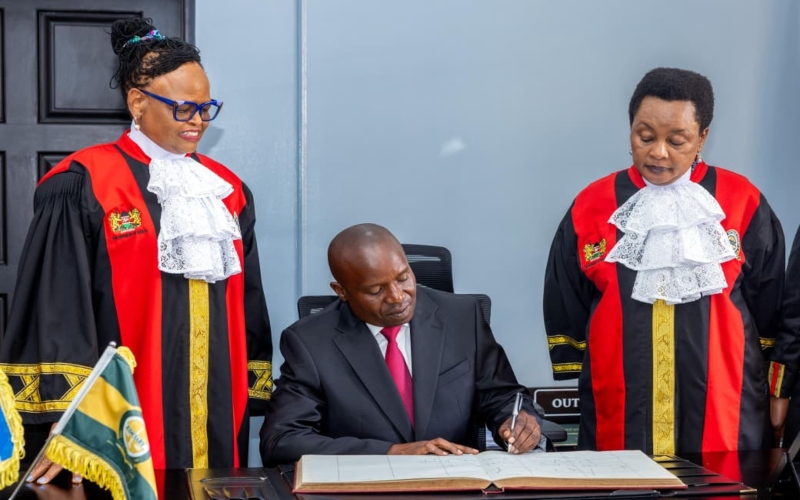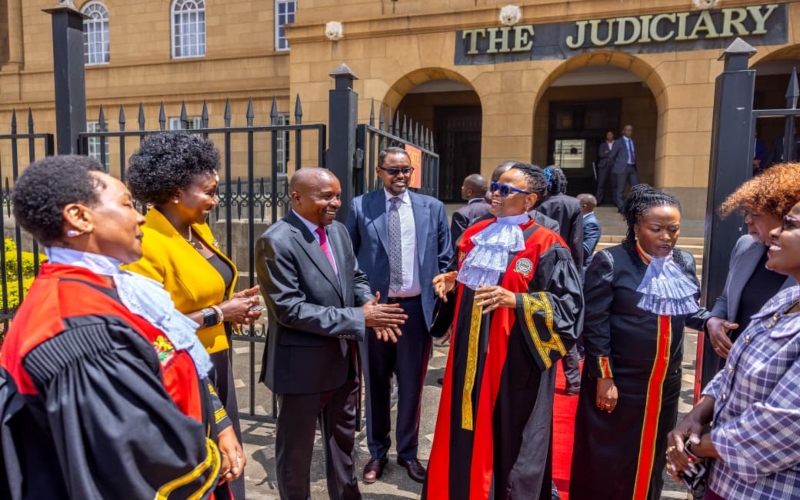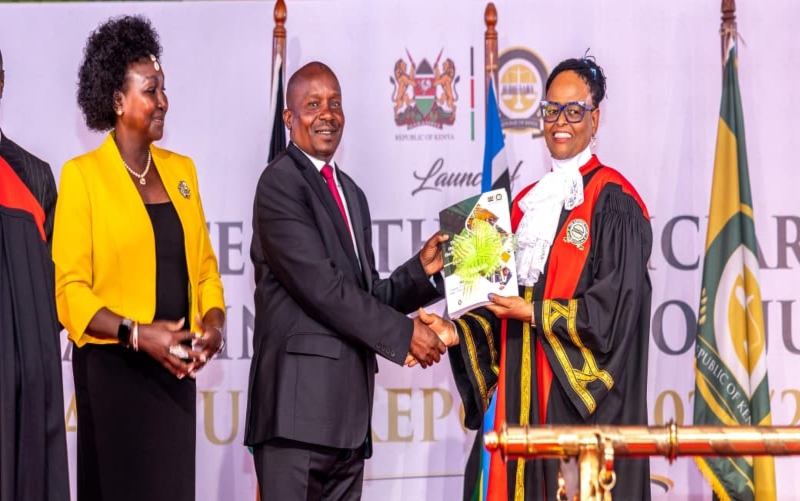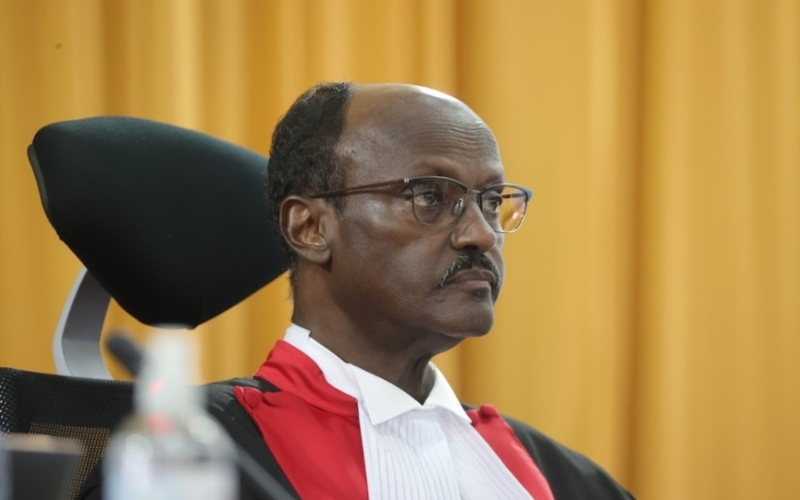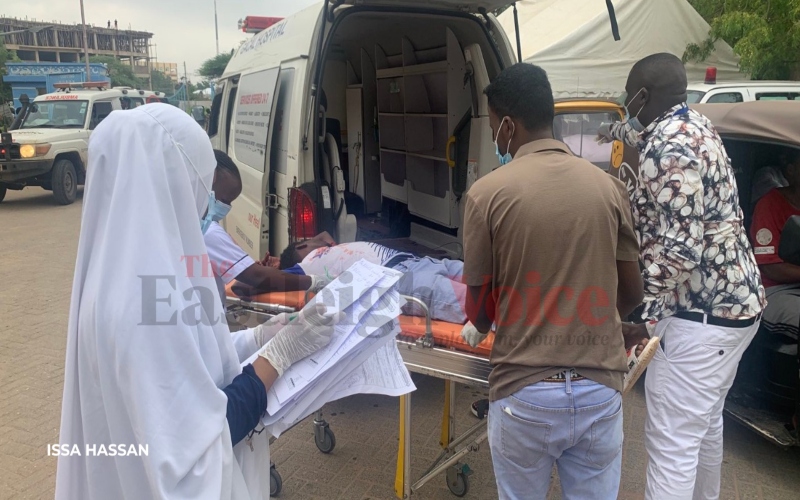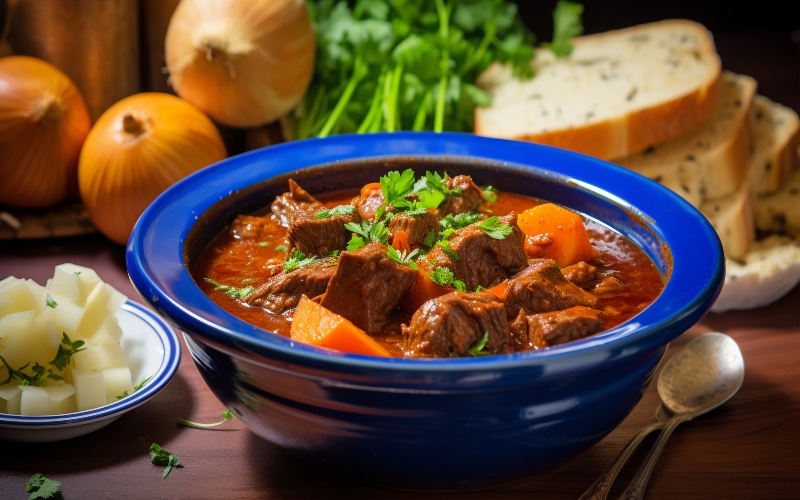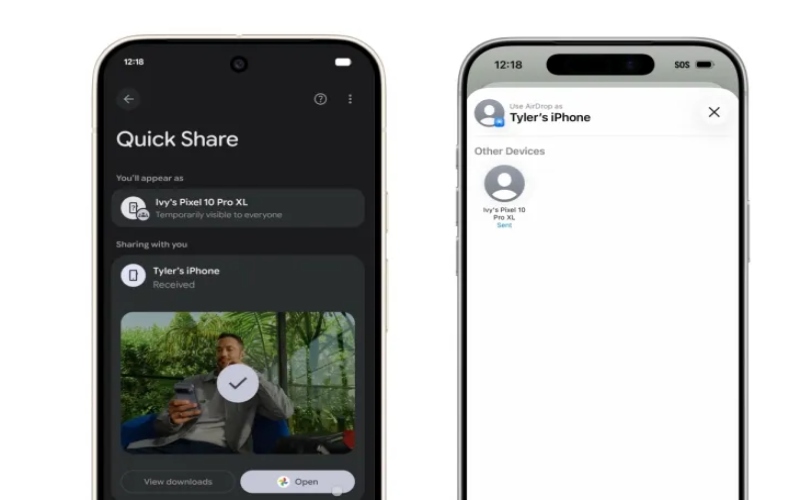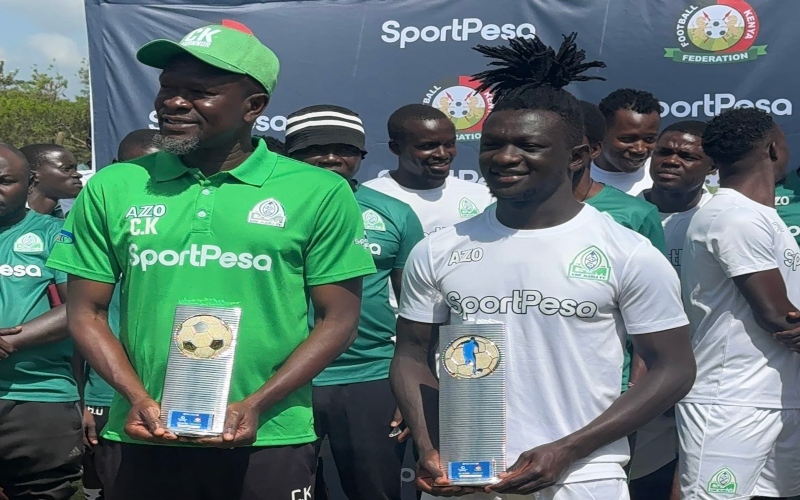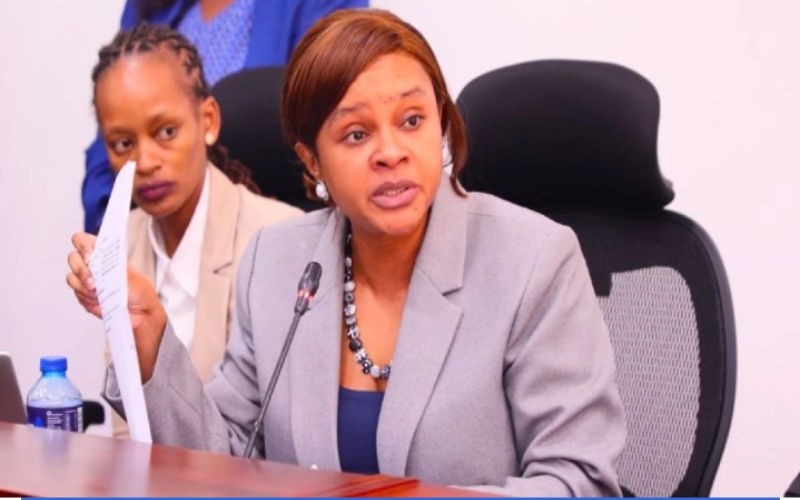Nickson Abaka: From boxing champion to mentor for Korogocho’s Youth
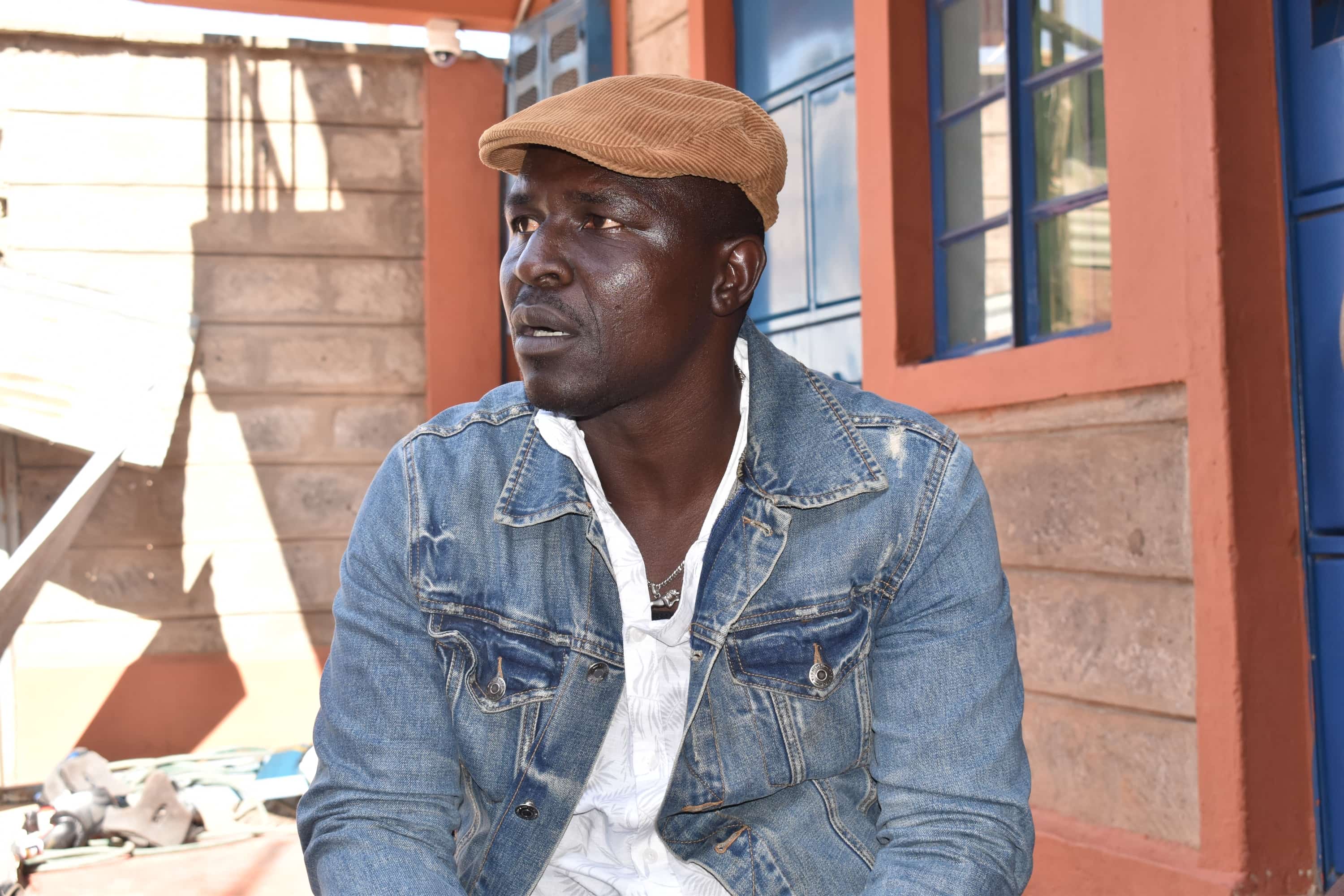
Former Kenyan boxer Nickson Abaka is on a mission to shape the future of Korogocho’s youth through his boxing foundation. After a decorated career that saw him represent Kenya in major international competitions, Abaka is now focused on providing a platform for young boxers while promoting education and mentorship in one of Nairobi’s toughest neighbourhoods.
The apple did not fall far from the tree when Nickson Abaka took up boxing at the age of 10 in 1990. His father, Thomas, was a member of the Kenya Police’s famed boxing team, Chafua Chafua, granting Abaka an opportunity to learn the basics of the sport at a young age as he observed his father’s training sessions.
“I used to copy his moves,” Abaka says, slipping into a boxing stance.
His passion deepened when the family moved to Kariobangi after his father’s early retirement from the police service. There, Abaka crossed paths with the late South African boxing coach Eddie “Papa” Musi, who refined his skills. Musi had founded the Kariobangi Boxing Club, the first of its kind in the area.
“The club was also known as ‘Bangladesh’ in our days,” Abaka recalls, referencing the club’s reputation for producing battle-hardened fighters.
Under Musi’s guidance, Abaka’s talent flourished, leading to a remarkable boxing career. He represented Kenya at major international competitions, including the Commonwealth Games (Glasgow 2014 and Gold Coast 2018) and the IBA World Boxing Championships (Kazakhstan 2013). He also made the Kenyan team for the 2008 Beijing Olympics but was sidelined by a jaw injury.
By then, Abaka had joined the Kenya Defence Forces in 2006, recruited for his boxing talent. In 2011, he made history by becoming the first Kenyan military boxer to win a medal at the World Military Games in Rio de Janeiro, clinching bronze in the welterweight division. Three years later, he became one of Kenya’s pioneer boxers in the AIBA Professional Boxing (APB) circuit, following recommendations from fellow boxers Benson Gicharu and Rayton Okwiri.
“I got the APB opportunity after a German boxer pulled out due to injury. The organisers consulted Gicharu and Okwiri, who recommended me,” Abaka says.
After retiring in 2018, following a bronze medal win at the African Military Games in Algeria, Abaka turned his focus to a lifelong goal - establishing a boxing foundation to give back to the community.
“I have always had four main goals: serving God, building a home for my family, taking my children to good schools, and creating a boxing foundation to support young talent,” says the 44-year-old.
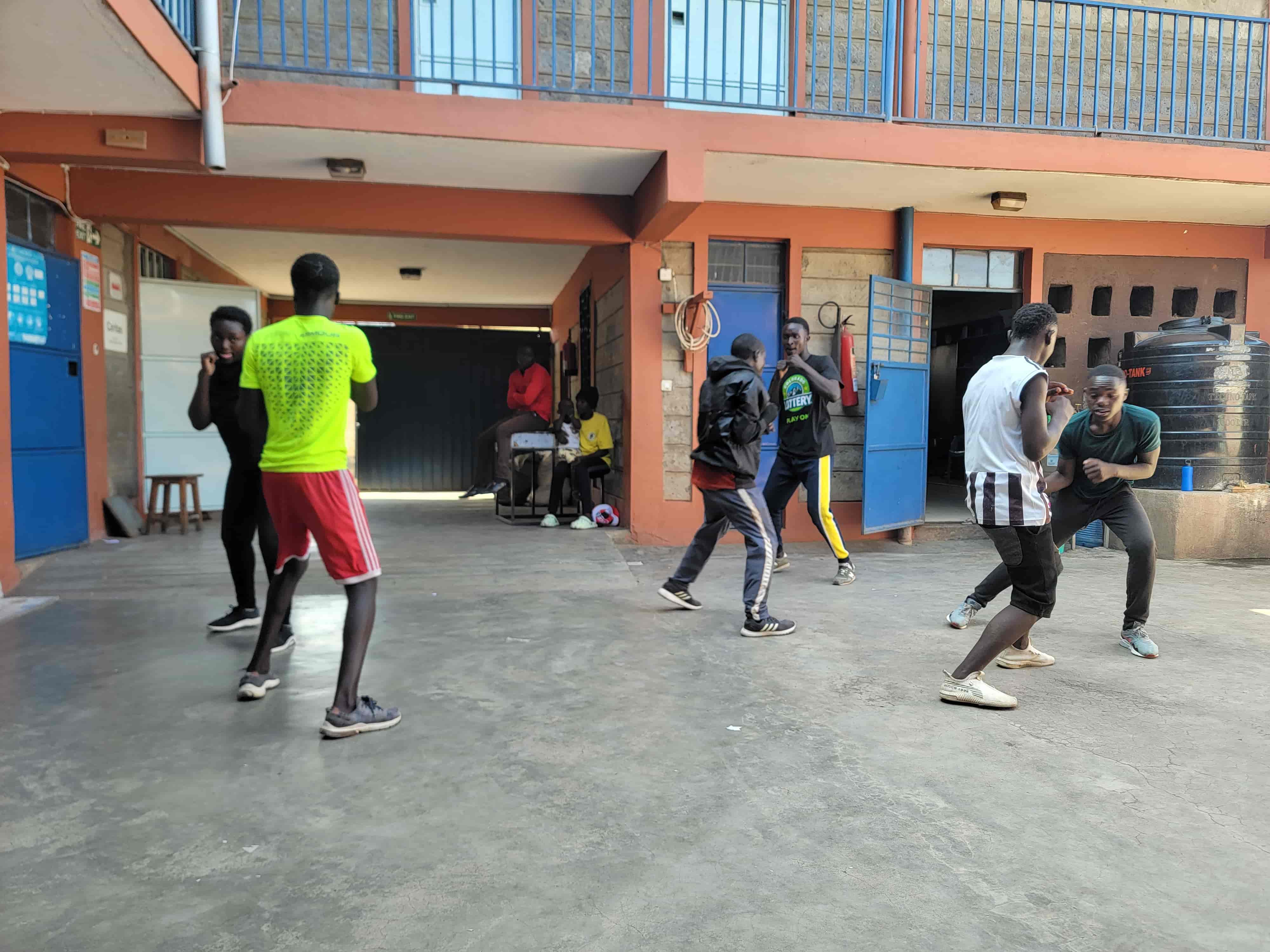 King Abaka Boxing Foundation budding boxers during a training session at the Damascus Primary School in Korogocho (C) Ahmed Shafat / Eastleigh Voice
King Abaka Boxing Foundation budding boxers during a training session at the Damascus Primary School in Korogocho (C) Ahmed Shafat / Eastleigh Voice
Leveraging the networks he built during his career, Abaka founded the King Abaka Boxing Foundation in May 2019 at Damascus Primary School in Korogocho. The school’s management embraced the initiative, offering him space to train young boxers and store equipment at no cost.
“We train children aged between 7 and 18. When we started, over 60 kids joined, which was impressive given that football is the dominant sport here,” Abaka says. Providing meals after training sessions also helped attract young boxers.
As the foundation gained traction, Abaka expanded its mission beyond boxing. Recognising the challenges of growing up in Korogocho, he incorporated mentorship and education into the programme.
“Korogocho is a tough place to raise a child. We encourage our boxers to take their studies seriously because education and sport go hand in hand. I have seen talented athletes miss life-changing opportunities due to a lack of basic academic qualifications,” says Abaka, who captained both Kenya’s national boxing team and the KDF team for a decade.
To reinforce this, the foundation invites professionals to mentor the young boxers. Former teammate Benson Gicharu has also visited to inspire them, while goodwill ambassadors support the children’s education and provide Christmas gifts.
Operating within a school limits training to weekends and holidays. “We cannot train on weekdays as they have classes. During holidays, we hold intensive sessions. In 2021, some of our boxers even competed in the Nairobi Junior Championships,” he notes.
However, using a donated space presents challenges. While the foundation has enough boxing gear, installing punching bags and speed balls is impossible due to structural limitations.
“To set them up, we’d need to modify the space, which isn’t feasible at the moment,” Abaka explains.
His long-term solution is to relocate to a dedicated centre within Korogocho, where he envisions a gym, dormitories, and a computer lab to support both education and training. However, securing funding for the project remains an ongoing struggle.
Despite these hurdles, Abaka finds fulfillment in his work. His success as a boxer and military officer - he is also a recipient of a Head of State Commendation - has changed parents’ perceptions of sports as a viable career path.
“Many parents only focused on academics, but after interacting with me, they now see sports as a potential career,” he says. His foundation also exposes young boxers to other roles in the sport, including coaching, refereeing, physiotherapy, and nutrition.
Though his foundation has yet to produce a breakout professional, Abaka remains patient.
“It takes time to develop a top boxer. But with the work we’re putting in, we’ll get there. Even the Bible says a skilled man will stand before kings. We are instilling that belief in our youth because the future belongs to them,” he concludes.
Top Stories Today
